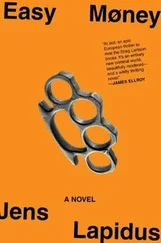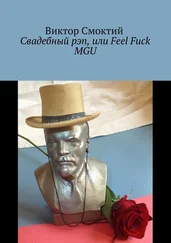Back in the cruiser. Thomas pulled his gloves off. Ljunggren wanted to go to some twenty-four-hour café and get a java refill.
From dispatch: “Area two, do we have anyone who can take a call for an unconscious man in Axelsberg? Seriously wounded. Probably intoxicated. He’s lying in a basement at Gösta Ekman Road number 10. Over.”
A real dirty gig. Silence. They slid on down the road.
No one else took the call. Crap luck.
The radio again: “We’re not getting any response for Gösta Ekman Road. Someone’s gotta take it. Over.”
Dammit, two chill police officers like Thomas and Ljunggren shouldn’t have to deal with more small fry tonight. It was enough that Ljunggren’d had to crawl around in the junkie’s nasty ride. They kept their mouths shut. Rolled on.
The radio ordered: “Okay. No one’s taking Gösta Ekman Road. It’ll be car 2930, Andrén and Ljunggren. Copy? Over.”
Ljunggren looked at Thomas. “Typical.”
Sometimes you just have to eat shit. Thomas pushed the mike button. “Roger that. We’ll take it. Any additional info? It was a drunk, right? There gonna be any booze left for us? Over.”
The radio voice belonged to one of the boring girls. According to Thomas: a sour pussy. Couldn’t kid with her like you could with most of the other chicks on dispatch.
“Quit playing around, Andrén. Just go. I’ll get back to you when we know more. Over and out.”
The car pulled up to Gösta Ekman Road number 10 a few minutes later. Ljunggren was whining about not getting his coffee yet.
People were lined up outside the entrance to the building as if waiting for some kind of show. A lot of people—the building had eight stories. The sky was beginning to brighten.
They got out.
Thomas took the lead. In through the entrance. Ljunggren dispersed the crowd outside. Thomas heard him say, “Nothing to see here, folks.”
Inside, the building felt super sixties. The floor was made of some kind of concrete plates. The elevator door looked like it belonged in a Star Trek spaceship. The small entranceway had a door out to a courtyard and a set of stairs leading down. There was a metal railing along the stair leading up to the second floor. He saw some people standing up there on the landing. A woman in a bathrobe and slippers, a man with glasses and a sweat suit, a younger kid who must be their son.
The woman pointed down.
“I’m so glad you’re here. He’s down there.”
“It’d be great if you could go back inside,” Thomas said. “We’ll take care of this. I’ll be up to talk to you in a bit.”
She seemed reassured by having done her civic duty. Maybe she was the one who’d called 911 in the first place.
Thomas started to walk down. The stairs were narrow. There was a garbage chute with a sticker on it: Please—help our sanitation workers—seal the bag!
He thought about his car again. This weekend he might buy a new motor for the automatic windows.
He checked out the lock on the cellar door. Assa Abloy from the early nineties. He should have a skeleton key that’d work, or else he’d have to ask the family he’d seen on the landing for help.
A few seconds later the electronic skeleton key buzzed. The lock clicked. It was dark in there. He switched on his Maglite. His right hand searched for the light switch.
Blood on the floor, on the bars over the cellar windows, on the stuff in the storage units.
He pulled his gloves on.
Eyed the body. A man. Dirty clothes, now also very bloody clothes. Short-sleeved shirt and corduroy pants. Covered in vomit. Boots with the laces untied. Arm at a weird angle. Thomas thought, Yet another little Kent.
The torso was bent. Facedown.
Thomas said, “Hello, can you hear me?”
No reaction.
He lifted the arm. It felt heavy. Still zero reaction.
Pulled off his glove. Searched for a pulse—stone cold dead.
He lifted the head. The face was totally busted—beat beyond recognition. The nose didn’t seem to exist anymore. The eyes were so swollen that you couldn’t see them. The lips looked more like spaghetti and meat sauce than like a mouth.
But something was strange. The jaw seemed to be sunk in somehow. He put two fingers inside the mouth, felt around in there. Soft like a baby’s palate—the dead man was missing teeth. This was obviously not a junkie who’d lost consciousness by his own doing—this was a murder.
Thomas didn’t get worked up.
Considered placing the man in the recovery position, but left him as he was. Skipped CPR. It was pointless, anyway.
He followed the rulebook. Alerted dispatch. Raised the radio mike to his lips, spoke in a low voice so as not to freak out the whole building. “I’ve got a homicide here. Real grisly. Gösta Ekman Road number 10. Over.”
“Roger that. Do you need more cars? Over.”
“Yes, send at least five. Over.”
He heard the call go out to everyone in the Southern District.
Dispatch got back to him: “Do you need any senior officers? Over.”
“Yes, I think so. Who’s on tonight? Hansson? Over.”
“That’s right. We’ll send him. Ambulance? Over.”
“Yes please. And send a couple rolls of paper towels, too. We’ve got a lot to mop up. Over and out.”
The next step, according to protocol: He talked to Ljunggren on the radio, asked him to make people identify themselves, gather addresses and telephone numbers for potential witness reports. Then have them wait until backup arrived with enough people to ask the usual control questions. Thomas looked around the stairwell. How’d the guy been killed? He didn’t see a weapon, but the perp’d probably taken that with him.
What should he do now? He looked at the body again. Lifted the arm. Didn’t bother with routine—he should really wait for the technicians and the ambulance.
He looked at the man’s hands. They were weird somehow—no missing fingers, not unusually clean or dirty—no, it was something else. He turned a hand over. Then he saw it—the tops of the dead man’s fingers were all messed up. On the top of every fingertip: a blood effusion. It looked like they’d been sliced, leveled, erased.
He dropped the arm. The blood on the floor’d dried. How long’d the dead guy been lying down here?
He searched his pockets quickly. No wallet, no cell phone. No money or identification. In one of the back pockets: a slip of paper with a smudged cell-phone number. He memorized the discovery. Put it back.
The man’s T-shirt was sticking to his skin. He looked closer. Turned the body over a little, even though he shouldn’t. That kind of thing was totally against protocol. Really, they ought to take photographs and search the place before anyone moved the body—but now his interest’d been piqued.
That’s when he saw the next weird thing, on the arm. Track marks from an injection needle. Small bruises around every puncture. Completely clear: what he had in front of him on the floor was a murdered junkie.
He heard sounds on the other side of the cellar door.
Backup was coming.
Ljunggren entered the room. Two younger inspectors brought up the rear. Thomas knew them, good guys.
They eyed the body.
“Damn, he sure slipped on all the blood someone spilled everywhere,” Ljunggren said.
They grinned. Police humor—blacker than this cellar’d been before Thomas’d switched on the lights.
Orders started sputtering out from their radios—Hansson, the senior officer, had arrived, gave orders to have the area cordoned off. Did what he usually did: ordered, organized, hollered. Still, it was a small operation. If it’d been anything other than a junkie in the stairwell, they would’ve called in all the squad cars they could get. Cordoned off half the city. Stopped trains, cars, subways. Now there was no real hurry.
Читать дальше












